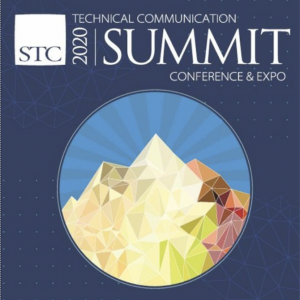The Modern Languages Placement test will take place on Monday, August 23rd, from 2:30–4:30 pm in the Walker Building HDMZ, 120A (first floor). This will be a great opportunity to also ask any questions related to the Modern Languages minors, courses, as well as to meet faculty.
Modern Languages is holding a scavenger hunt from Monday, August 23rd, until Friday, August 27th. Participate on Instagram, by following @mtumodernlanguages and #MTUML_hunt
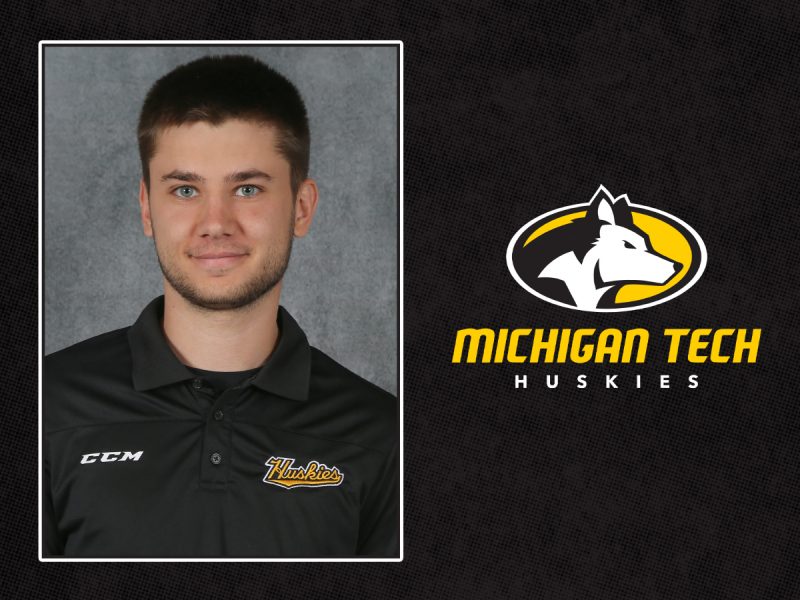
Michigan Tech Athletics has hired Zach Nicholas (STC, ’19) as assistant director of athletic marketing and communication. Nicholas will serve as the primary media contact for soccer, Nordic skiing, and track and field. He will also assist the director of advertising sales with the execution of partnership contracts and artwork.
Nicholas continues with Michigan Tech after three years as an athletic communications intern. He is a native of South Range, Michigan.
“I am very thankful to have the opportunity to promote my hometown Huskies, tell stories of our incredible student-athletes, and establish and maintain strong relationships in the community,” Nicholas said. “I am very appreciative of the invaluable experience and knowledge I have gained as an intern and am excited to continue with Michigan Tech in a new role.”
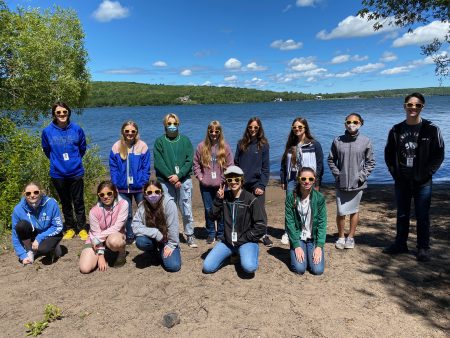
Thirteen high school students joined us for a week of writing-related activities, led by Maria Bergstrom, Humanities Department Lecturer, and Kate Woodford (English). The students spent time exploring the natural world throughout the Keweenaw and using it for inspiration in individual writing projects. They also had the opportunity to meet professional writers and learn more about careers in writing-related fields.
Highlights of the week included a trip to McLean State Park, a hike to Hungarian Falls, and an opportunity to explore materials in the Michigan Tech Archives. The week ended with students reading their work for a broad audience in a Facebook Live event.
This year the Humanities department was able to offer four scholarships to encourage local students and underrepresented students to take advantage of this opportunity.
Michigan Tech Summer Youth Programs is organized through the Michigan Tech Center for Educational Outreach.
Hear about the student’s experience in their own words with local reporter Joshua Vissers of Late Edition.
Scientific and technical communication (STC) undergraduate student Julia Barnes was awarded a Sigma Tau Chi/Alpha Sigma (STX/AS) honor June 8 at the Virtual Summit of the Society for Technical Communication.
Barnes was one of four students recognized in a ceremony that honored more than 20 STC professionals from around the world.
Dr. Stefka Hristova and Dr. Sue Collins (HU) have been awarded a grant by Michigan Humanities, an affiliate of the National Endowment for the Humanities, for their project “Bad Info: Fake News, Manipulated Photographs, and Social Influencers.”
This project explores issues of media literacy in relation to the spread of mis- and dis-information. It aims to educate college students as well as our local community more broadly on how to identify fabricated news, manipulated photographs, and social influencers and their infomercials, in digital media and social media contexts.
This initiative is a collaborative effort involving the Department of Humanities, J. Robert Van Pelt and John and Ruanne Opie Library, and Copper Country Community Art Center. Bad Info features three exhibits, four workshops, film screenings, panel discussions, and keynote experts in information literacy.
The series of events will run from October 2021 through the spring semester 2022.
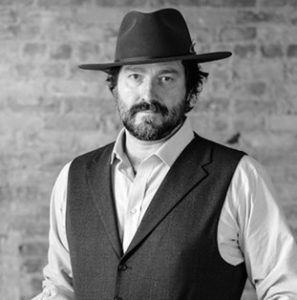
M. Bartley Seigel (HU) has been named a 2021 Poet Laureate Fellow by the Academy of American Poets. Seigel, director of the Michigan Tech Writing Center and an associate professor of creative writing and literature, is one of only 23 poets laureate of cities and states across the U.S. to receive the honor.
“I’m really humbled and honored by this fellowship,” said Seigel, who was selected as the 2021-22 Upper Peninsula Poet Laureate in January. “While it’s always been something of a challenge making art at an institution where attention is so firmly fixed elsewhere, my unique positionality in this pond of scientists and engineers has held me accountable to my words in unexpected and fortuitous ways. I wouldn’t be the poet I am were I not where I am, and were I not in the close company of so many different and exceptional minds.”
As a Poet Laureate Fellow, Seigel receives an award of $50,000 in support of his art, a portion of which is set aside to lead a public poetry program. He intends to collaborate with regional public and tribal high school teachers to launch the Upper Peninsula Young Poets Program. The program will introduce high school-aged students in the U.P. to the diversity and transformative power of poetry, encourage their emerging voices and provide them with a free college-level writing workshop.
In a press release announcing the 2021 Fellows, President and Executive Director of the Academy of American Poets Jennifer Benka said, “As we begin emerging from COVID-19 restrictions, poetry — which has provided such comfort these past 15 months — will continue to be a source of insight. We are honored and humbled to fund poets who are devoted to their own craft and also their community. Poets will most certainly help guide us forward.”
Through its Poets Laureate Fellowship program, the Academy of American Poets has become the largest financial supporter of poets in the nation. The fellowship program is made possible by The Andrew W. Mellon Foundation, which in January 2020 awarded the Academy $4.5 million to fund the program.
Professional development opportunities that students can take advantage of while they are in school contribute significantly to student success after graduation. For Julia Barnes, Scientific and Technical Communication (STC) major, a recent opportunity to hear from professionals in her field was a great way to continue to build her expertise and her network. Barnes attended the 2020 Society for Technical Communication Summit in May.
While she was looking forward to a trip to Seattle, WA to attend in person, Covid-19 restrictions resulted in a shift to a virtual conference. However, the result was no less impactful for Barnes. “I was able to visit sessions that covered a wide range of topics from project tracking to giving feedback. I learned a lot and engaged in meaningful conversations with the other attendees as well.” One benefit of the virtual format? “All of the sessions have been recorded and the slides are available to download until August or so. So many of the topics this year are relevant, no matter the workplace or profession. I’m going to continue tuning into sessions so that I can hear what other technical communicators have to say.”
STC undergraduate students from Michigan Tech have been able to attend the Summit annually over the past several years thanks to the encouragement and support provided by Nancy Hoffman, a member of the Society for Technical Communication and generous friend of the Humanities department. The department thanks her for helping provide these valuable opportunities for our students.
Associate Professor Dana Van Kooy presented her essay, “Assemblages of the Plantationoscene” recently at The London Stage and the Nineteenth-Century World III conference, sponsored by the New College at Oxford University.
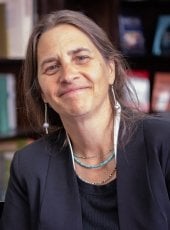
Invoking the neologism “plantationoscene,” the paper from Van Kooy, who directs Tech’s English program, examines John Fawcett’s pantomime, “Obi; or Three-Finger’d Jack,” which opened at London’s Haymarket Theatre in 1800. Linking the era (cene) to the performance and visual reproduction of specific theatrical scenes, this neologism offers an alternative framework for interpreting Fawcett’s pantomime, which assembled scenes of plantation life and its corresponding devastation into a formulaic plot.
Focusing on stage descriptions and those scenes advertised on its playbills, “Assemblages of the Plantationoscene” draws attention to the production of a visual ecology that reconfigured the colonial landscape.
In her abstract, Van Kooy established the relevance of the topic: “Throughout The Atlantic World, the plantation system marked a period of human and ecological disaster, one that theaters in Britain and the United States readily transformed into captivating spectacles throughout 18th and 19th centuries. The scale of this devastation continues to impact society in myriad ways, including racialized violence and policies that associate people and labor practices with ‘natural’ and/or geographical spaces.”
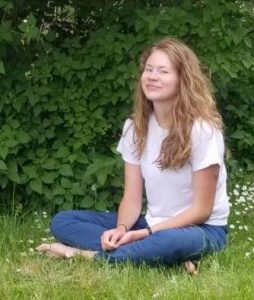
When I applied for a student gardener position, I was overjoyed that I would get to spend all my time outside doing what I love to do while also taking classes and getting paid for my time. It took me nearly a year to realize that what I was doing could be related to my Scientific and Technical Communication major based on the fact that the degree is incredibly broad and can be applied to a wide variety of situations. The STC degree has allowed me to take bits and pieces of what I have learned in my classes and apply it to this internship. This includes things such as design, spreadsheets, documentation, information organization, and prioritization.
In this internship, I am mapping all 172 gardens across campus and documenting the plants in each one. The objective is to create a page on Michigan Tech’s website where visitors can learn about the gardens and the overall ability to grow plants in a climate such as ours which, to some, may seem a bit difficult if not impossible. The overall goal is to spread awareness and promote the creation of green spaces. On the technical end, in addition to the garden mapping, I am revamping the garden department’s current method of chemical storage. With this, I am reorganizing, documenting, creating spreadsheets, laying out safety procedures, and ensuring all OSHA standards are met. This will be beneficial not only moving forward with day to day tasks but also with the overall training of new students. I am thrilled that the work I am doing will be used for years to come. It is not simply busywork, but instead, something that will help me progress in my career and also serve future employees in this role.
I am realizing, while still in college and taking STC classes, that the skills I learn in school and apply in my working life are more concept-based than specific information/procedure based. I am learning how to learn, and the STC program is putting me in the mindset to do that. I know how to take in all sorts of seemingly unrelated information and connect them in ways that are unique and beneficial. I think that this is a great opportunity for me to harness my skills in a real-world setting. I entered this major because I was intrigued by the idea of being able to adapt to a work environment of my choosing and being able to take my work with me, not going where my work takes me. — Whitney Johnson, STC

